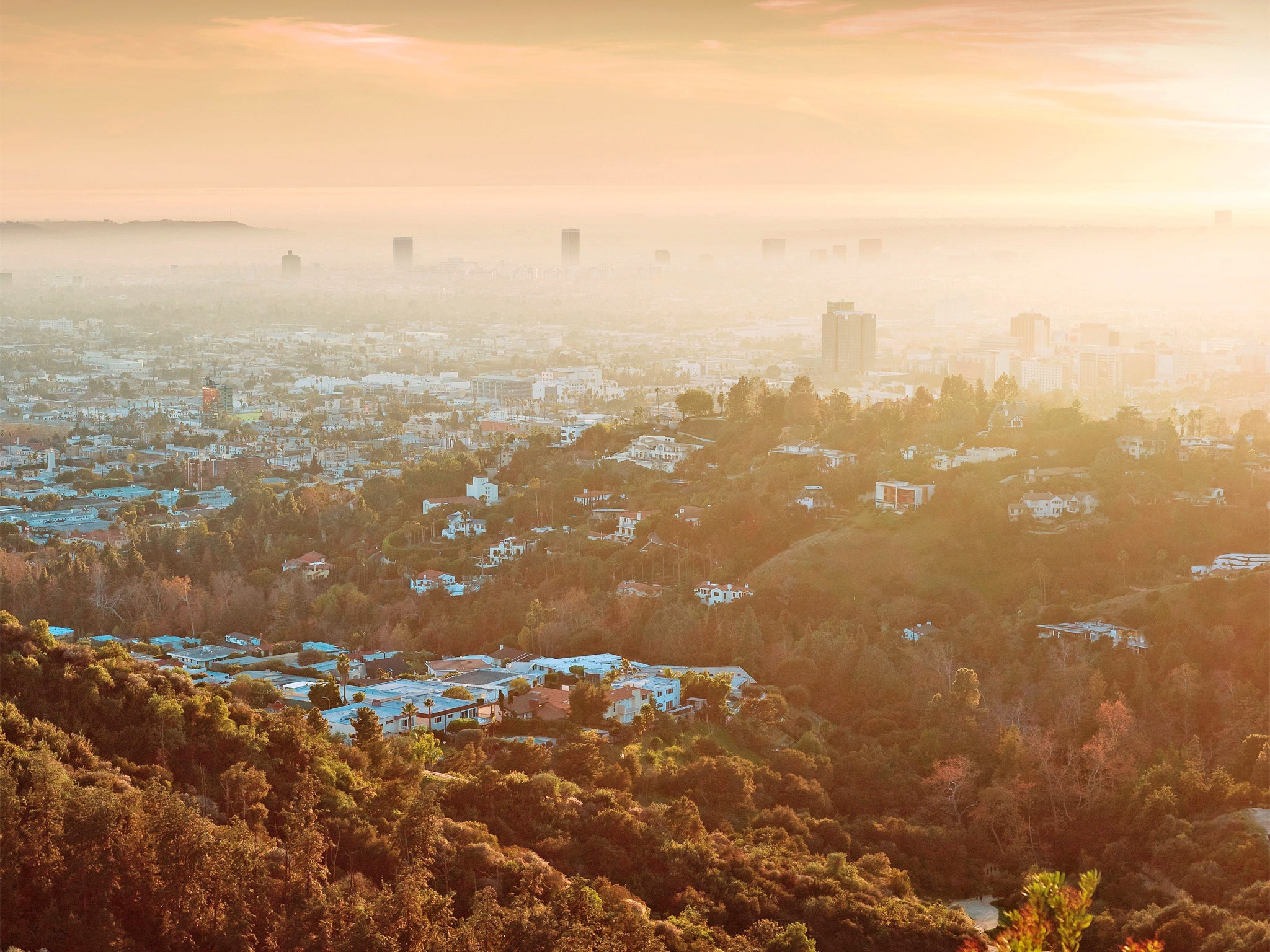Made in China: LA's smog is the latest product from the Asian superpower exported to America
Scientists find that pollution from outsourced US industry comes back home on the westerly winds

Your support helps us to tell the story
From reproductive rights to climate change to Big Tech, The Independent is on the ground when the story is developing. Whether it's investigating the financials of Elon Musk's pro-Trump PAC or producing our latest documentary, 'The A Word', which shines a light on the American women fighting for reproductive rights, we know how important it is to parse out the facts from the messaging.
At such a critical moment in US history, we need reporters on the ground. Your donation allows us to keep sending journalists to speak to both sides of the story.
The Independent is trusted by Americans across the entire political spectrum. And unlike many other quality news outlets, we choose not to lock Americans out of our reporting and analysis with paywalls. We believe quality journalism should be available to everyone, paid for by those who can afford it.
Your support makes all the difference.Like so many iconic American products, Los Angeles smog is now being made in China.
That’s the finding of a new scientific study, which concluded that China’s notoriously suffocating air pollution is now drifting over the Pacific Ocean and affecting the Western US.
Yet the study, published this week in the Proceedings of the National Academy of Sciences, also explained that China’s increased emissions are a by-product of the outsourcing of US manufacturing, and that the imported smog is therefore part of a “boomerang effect”.
According to the paper, pollution caused by China’s manufacturing for export contributes as much as 12 to 24 per cent of daily sulphate levels in the Western US. LA’s smog has decreased dramatically in recent decades, but the study found that, thanks to Chinese emissions, the City of Angels now experiences at least one extra day of smog per year that exceeds federal health standards.
Westerlies carry airborne chemicals such as sulphur dioxide, carbon monoxide and black carbon across the Pacific in just a few days.
The study is the first to consider the impact of global consumption on pollution levels, and it found that the movement of manufacturing industry from the US to China was of net benefit to American public health: though the Western US has suffered a slight decrease in air quality, the region’s population is far less dense than the East – where the air is now significantly cleaner.
The study was written by a group of nine scientists from China, the US and the UK who analysed data from 2006, finding that approximately 20 per cent of Chinese pollution is the product of manufacture for export. According to the paper: “Rising emissions produced in China are a key reason global emissions of air pollutants have remained at a high level during 2000–2009 even as emissions produced in the United States, Europe and Japan have decreased.
Outsourcing production to China does not always relieve consumers in the United States – or, for that matter, many countries in the northern hemisphere – from the environmental impacts of air pollution.”
China’s production of goods for export expanded by almost 400 per cent between 2000 and 2007. The boom has brought choking smog to Chinese cities, even as it brought cheaper electronics to Western consumers. Last year, the Proceedings of the National Academy of Sciences published research that suggested air pollution had caused a drop in life expectancy in northern China.
Though scientists are concerned by the impact of China’s emissions on global air pollution, most of LA’s smog is still the result of local emissions from vehicles and industry.
Steve Davis, one of the report’s co-authors and an Earth system scientist at the University of California, Irvine, told the Los Angeles Times he hoped the study would show the US and other governments that global emissions are a global responsibility. “We need to move beyond placing blame for who’s creating these emissions and realise that we all have a common interest in reducing the pollution,” he said.
Join our commenting forum
Join thought-provoking conversations, follow other Independent readers and see their replies
Comments